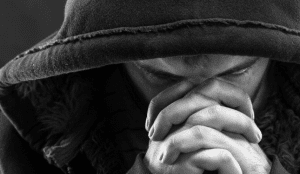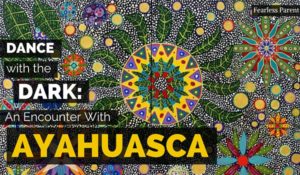Anyone who goes through life with a conscious observant eye and a thinking mind must realize that, despite its plentiful and glorious achievements, humankind is facing multiple crises. These manifest themselves in seemingly all aspects of society, including education, health care, environment, agriculture, economy, and relationships from interpersonal to international.
Limitations of contemporary science
In all of their striving to take us from darkness to light, modern sciences have been trying to understand observed phenomena using various models or theories. These models start with certain presuppositions about the entities in the phenomena, and efforts are made to explain the phenomena in question by means of logical deduction from the presuppositions. The presuppositions may be subsequently refined or refuted as the model further develops.
For example, to understand matters, it is presupposed that they are made up of atoms, nuclei, and electrons, which interact with each other under certain (also presupposed) laws, and try to capture phenomena in mathematical models consisting of these presuppositions. As new phenomena are observed, new concepts such as quarks and string theory are introduced into the model. Or, to understand light, it is presupposed that light travels through space in the form of waves, and light phenomena such as the appearance of colors are explained as the interactions of these waves. Subsequently, to explain the photoelectric effect, it became necessary to add to the initial presupposition the wave-particle duality of light — that light behaves not only as waves but also as particles.
As long as a phenomenon can be deduced from the presuppositions in the model, the phenomenon is claimed understood.
As more and more phenomena are explained in this way within the model, it is believed to have come closer and closer to such level of completion as mankind will ever need it to be.
Unfortunately, since evaluation of the real-life validity of the presuppositions of a scientific model can only be meaningfully done from outside of the model, one who operates within the model can never, with conscience, deny the possibility that his model is missing something critical, one which, once revealed, might overturn the entire existing model.
The negative implications of this fact are magnified in the context of the disfavour of holism for mechanistic reductionism, especially (but by no means only) when it comes to understanding living things, the most complex of which human beings. Humankind has, deviating from traditions of the previous eras, started to attempt to understand human beings from disciplines that have been operating increasingly independently from each other: medicine, for instance, has come to deal mostly with the physical human body, while such areas as human emotions and the spirit have been largely left to be addressed in the realms of psychology and philosophy. The answers these disciplines provide, however, have been existing separately from the more practical aspects of society such as economy and education, which have been, as a result, operating on little appreciation for these human complexities.
It is the widespread application of this inadequate understanding of reality that is responsible for the many crises aforementioned.
As its result, the predominant economic model has been treating human labor as a mere commodity without in any sincere and fundamental way addressing the undeniable human need for dignity and emotional fulfillment. Education focuses mainly on teaching the mind, making ubiquitous use of rigid instructions, standardized tests and competitions, failing to respect the individuality of growing human beings and the education of the heart. While the body is bombarded with artificial substances from food, medicine and the environment with little-understood impact, the soul and spirit, the very existence of which is deemed questionable, are left to wither in the pervasive influence of many meaningless and harmful modern cultural products. Success, defined chiefly by material possessions and social status, is pursued as the ultimate goal in life without the realization that it does not mean happiness nor freedom.
It is clear that overcoming these crises to reform the world calls for a sounder approach to understanding reality.
A scientific approach to overcome crises
This alternative approach will, first and foremost, always respect the wholeness of an entity and seek to understand it as a whole contained within a larger whole, instead of proceeding to try and understand each of its parts based on presuppositions about the entity, forgetting that it is more than the sum of its parts. This will preclude actions that might yield a short-term benefit but disrupt the wholeness of the various entities of reality. Treatments that help the human body, and the larger human being, heal as a whole will be favoured over ones that focus on a single organ or process. Interventions cannot be made that upset the balance of ecosystems. The welfare of whole nations will be put before interests of groups, which will guide resolution of conflicts between states.
It will then attempt to understand phenomena by making possible logical connections among them. If no connection can be made within the existing body of observations, further observations are called for. Presuppositions or theories about the entities in the phenomena can be made if needed but only to guide further observations. A new understanding of the phenomena is attained when a new logical thread is drawn which connects the observations.
Only this approach is the path to true understanding because the reasoning process always strives to stay within the boundary of observations, and because it is rooted in a world view whereby the human world and the world outside him are united, true to their interweaving nature. The knowledge that it gains stays within human activity and influence, so that the human being is not a mere spectator but an active participant in what he comprehends. This is analogous to the kind of understanding an experienced farmer has of his land and its inhabitants, a person of a beloved, or a masterful holistic physician of a patient’s constitution.
Anthroposophy, meaning “wisdom of the human being,” a path of knowledge founded by Rudolf Steiner in the late 19th century, seeks to acquire and apply this type of scientific understanding into all aspects of society. It sheds light on the human soul and spirit, the mastermind behind human thinking, feeling, and willing, and on other human intricacies such as individuality, freedom, and the meaning of life. This serves as the foundation for the development of all spheres of society. Waldorf education centers on facilitating the unfolding and flourishing of children to their full potential. Anthroposophical medicine looks at diseases in light of the interaction between the body, soul and spirit. Biodynamic agriculture harmonizes the nourishment of the vital life forces of the farm and the cooperation with the subtle influences of the wider cosmos so as to yield sustainable abundance.
The social organism it outlines is one where cultural life, which encompasses all scientific, educational, artistic and spiritual activities, thrives entirely according to its own inherent interests and impulses without being dominated and shaped by politics, which, in turn, is monopolized by economic power. This cultural life, which satisfies the soul and spirit, and thus enables social and ethical thought and ideas to unite, serves as the basis for the creation of a political and legal system by people with a living interest in it, who have been intelligently educated so as to be deeply attuned to their legal relations and rights, as well as an economy that is fruitful because its cultivation of the spirit and soul has allowed human beings to develop their capacities to the fullest.
In other words, a society of Freedom, Equality, and Fraternity.
 Trinh Huynh holds a PhD in Computer Science from the University of Washington, where he researched the inherent limitations of computers. He currently works in the IT industry. Having a 6-year old child, he spends much of his free time contemplating the world and the future. Along the way, in 2014, he found Anthroposophy, which has been inspiring him to transform his thinking. His A Striving Monistic Thinker blog presents his world views. Trinh can be contacted at hndtrinh@gmail.com.
Trinh Huynh holds a PhD in Computer Science from the University of Washington, where he researched the inherent limitations of computers. He currently works in the IT industry. Having a 6-year old child, he spends much of his free time contemplating the world and the future. Along the way, in 2014, he found Anthroposophy, which has been inspiring him to transform his thinking. His A Striving Monistic Thinker blog presents his world views. Trinh can be contacted at hndtrinh@gmail.com.
Suggested further reading
The following books, written by Rudolf Steiner, contain the scientific and epistemological foundation of Anthroposophy.
For these and other topics, the Rudolf Steiner Archive is an excellent resource for further reading in Anthroposophy.
Acknowledgement: I am deeply grateful to the many souls and spirits who give life to this article.













Thank you Trinh, I am inspired by your work. This is a needle in a haystack.
One of the pleasures of the internet, FB et al. is the possibility of making connections with people from other countries, other walks of life. My FB friend Louise Kuo Habakus pointed this out to me – a posting about anthroposophical thought which is posted on her website Fearless Parent. One of the qualities I most admire about Louise is her commitment to resist fear, anger and despair, as she takes on some tough topics